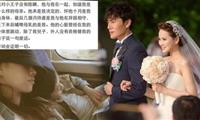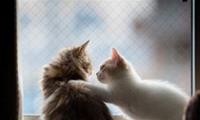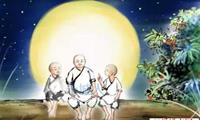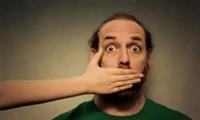管好自己就能飛讀後感(一)
一本“讓父母放心、讓老師省心、讓學生開心”的書,刮起千百萬青少年學生自我負責、自我管理“風暴”,被譽為“最能幫助青少年強化自覺精神和自立能力的成長讀本”,這些話語,深深地吸引了我的目光,我毫不猶豫地申請了這本書,並非常幸運地獲得了試讀的機會,我翹首以盼,沒想到卻是波折重重,久久沒能收到書,看到別的獲獎者跟貼說收到書了,我對自己說,要沉住氣,但在看到別人都陸續提交書評後,我趕緊給喆媽博客裡發了紙條,告之我還沒有收到書,在經過多次溝通後,
經過重重波折,終於在上個周日拿到了書,也許,經歷了考驗,才越發珍貴,我迫不及待地看了起來。
書中分為四個部分,第一部分講述了作者如何從不喜歡甚至痛恨自我管理,到愛上自我管理的過程,以及一些對作者很有影響的人的做法。第二部分是與讀者分享一個格外有效的獨特的方法——每天寫作自我管理總結。第三部分講述的是作者在成長過程中最有用的一些感悟,當中描寫的體驗不僅真實,也注重獨創性,非常有借鑒作用。第四部分,總結出最受當代學生重視的7方面進行自我管理的探究,包括態度管理、安全管理、心情管理、欲望管理、語文管理、行為管理和人際關係管理,
一、學習是為了自己的成長
讀書是為了父母、為了老師嗎?答案是否定的,讀書,就要樹立一個目標,明確學習動機,在根本上對自己負責,而不是為了應付他人,只有當我們完成了從“要我學”到“我要學”的轉變,學習才會真正成為一件輕鬆而快樂的事情。書中有個例子讓我記憶深刻,作者選修的AP微積分的老師尖酸刻薄,對作者提前預習,使用老師尚未教授的公式完成作業時給予了批評,作者失望之余甚至想放棄這門課程,
二、保護自己最重要,學會“見義智為”
正如作者所說,我們總覺得危險離自己很遠,文中給我們敲響了警鐘,在這個世界上,危險到處存在,一定要警惕自己成為被傷害的“羔羊”,比如,小孩子坐計程車時,記下車牌號,並當著司機的面打電話給家長,使用這個方法讓個別壞司機別動歪念,這個方法真是太好了,簡單易行,尤其是對家有小女的家庭來說,太有用了!
“見義智為”,這個話題我曾經在另一本書中看到過,
三、與不良情緒說“拜拜”
遇到不如意,你有兩個選擇:改變它,或者適應它。當我們沒有辦法改變不如意的環境時,我們起碼可以改變自己的態度。
四、做行動的“巨人”
拖拉是很多孩子的毛病,作者用自己簽證的例子很好地說明了立即做的好處,不要擔心做不好或是怕有損失或是怕吃苦而猶豫不決,想去做而又不去做,當你真正開始去做了,就會發現,事情並不像想像的那樣艱難,而且往往會因此抓住甚至創造一些很好的機會。
五、學會包容,捨得付出
人際關係是我們生活當中非常重要的一部分,一個人,不管你其他方面如何優秀,
首先我們要善於接受,不會接受別的人東西和好意,實際上也就把友情和自己的幸福擋在了門外。人際的交往,不僅要懂得付出,還要懂得接受。接受別人的好意,也是在滿足別人的滿足感。
更重要的一方面,我們要學會包容。寬容他人,就是善待自己,在矛盾中,誰都會希望自己得到別人的理解,這些是人性中最基本也最真實的東西,當我們掌握了這些,就能讓我們的人際關係更加和諧。
看到這裡大家也一定也會覺得這是一本值得一看的書,特別是青少年,值得推薦閱讀,當真正學會以自我管理的方式去安排自己的學習和生活一定會獲益良多。
管好自己就能飛讀後感(二)
這是一本適合我們每個人讀的書,這是一本教會我們自我管理的讀物。()在這一本書中我學到了許多的自我管理方法,看到作者我我們講的親身經歷的故事,還有作者發出的感慨,對我們以後的啟發教我們該如何去做。
在書中,主人公身上曾經所犯過得錯誤,在我身上也看到過,我們小時候也會很叛逆,很不喜歡大人的約束與管教。現在我們長大了,就要去自己管理自己了。我遇到困難就會選擇放棄,但是放棄是唯一的失敗,只有一直堅持的走,就會有希望;我總是害怕吃苦,我雖然喜歡成功的感覺,但是我卻很討厭走向成功的這條路。作者告訴我,生命誠可貴,認真價更高。作者害怕被人約束,但是最終卻可以做到自己去管理自己。
以前我是一個不會自我管理能力的人,但是現在我學會了許多。我學會了說到的事情,就一定要做到。要言而有信,要對自己說過的事情負責。要向那位優雅的清潔工,有著自信去面對所有人。相信自己是最好的。要學會總結,總結自己今天收穫了什麼,有什麼做的不對,明天應該如何改正。
有一個成語叫做:笨鳥先飛,可作者卻有著不同的看法,聰明人更要下笨功夫。說明確實聰明的人越是不要自大。但笨的人也不要自卑。經過自己不斷的努力,自己也一定會成為那個聰明人。當讀完《管好自己就能飛》這本書之後,我受到很大的觸動,我暗暗下決心要向吳牧天哥哥學習自覺管理好自己,要做一個讓老師省心、讓父母放心的好孩子。我有信心我一定能做到。
這是一本令我受益匪淺的書,我要學會做行動的“巨人”,懂得積極的心態是戰勝黑暗的明燈。當我真正學會自我管理時,我覺得並不是一種約束,而是一種樂趣。不經一番寒徹骨,怎得梅花撲鼻香。只有對自己嚴格一些,才能得到成功。棉花堆裡磨不出好刀的。
蠅王英文讀後感
First and foremost, as far as I am concerned, in exploring the breakdown into savagery of a group of boys free from the imposed moral constraints of civilization and society, Lord of the Flies dramatizes a fundamental human struggle: the conflict between the impulse to behave morally and the impulse to indulge in violence. The first set of impulses might be thought of as the “civilizing instinct”, which encourages people to work together toward common goals and behave peacefully; the second set of impulses might be thought of as the “barbarizing instinct”, or the instinct toward savagery, which urges people to rebel against civilization and instead seek anarchy, chaos, despotism, and violence.
What is more, I will present my opinion about the two main characters: Ralph and Jack.
Ralph is the athletic, charismatic protagonist of Lord of the Flies. Elected the leader of the boys at the beginning of the novel, Ralph is the primary representative of order, civilization, and productive leadership in the novel. Ralph’s power and influence over the other boys are extremely secure at first. However, as the book progresses and the group succumbs to savage instincts, Ralph’s position declines precipitously as Jack’s station rises. Ralph’s commitment to civilization and morality is strong, and his main wish is to be rescued and returned to the society of adults. For much of the novel, Ralph is simply unable to understand why the other boys would give in to base instincts of bloodlust and barbarism. The sight of the hunters chanting and dancing is baffling and distasteful to him.
Jack, the strong-willed, egomaniacal boy who is the novel’s prime representative of the instinct of savagery, violence, and power, is the antithesis of Ralph. From the beginning of the novel, Jack desires power above all other things. The first time he encounters a pig, he is unable to kill it. But Jack soon becomes obsessed with hunting and devotes himself to the task, painting his face like a barbarian and giving himself over to bloodlust. The more savage Jack becomes, the more he is able to control the rest of the group. By the end of the novel, Jack has learned to use the boys’ fear of the beast to control their behavior, giving Golding a chance to explore how religion and superstition can be used as instruments of power. Jack’s love of authority and violence are intimately connected, as each enables him to feel powerful and exalted.
Furthermore, I will tell you two themes I have found in this novel.
The important theme of the novel is the conflict between two competing impulses that exist within all human beings: the instinct to live by rules and to value the good of the group on the one hand; and the instinct to gratify one’s immediate desires, to act violently to obtain supremacy over others, and to enforce one’s will on the other hand. The conflict might also be expressed as order vs. chaos, reason vs. impulse, law vs. anarchy, or in any number of other ways, including the more generalized good vs. evil. Throughout the novel, the instinct of civilization is associated with goodness, while the instinct of savagery is associated with evil. Generally, the novel portrays the instinct of savagery as far more primal and fundamental to the human psyche than the instinct of civilization. Moral behavior, in Golding’s view, is often merely a forced imposition of civilization, rather than a natural expression of human individuality. When left to their own devices, the novel seems to argue, people will become cruel, wild, and barbaric. This idea of innate human evil is central to Lord of the Flies.
Another theme is loss of innocence. As the boys on the island progress from well-behaved, orderly children who hope to be researched to cruel, bloodthirsty hunters who have no desire to return to civilization, they naturally lose the sense of innocence that they possessed at the beginning of the novel. The painted savages in Chapter 12 who have hunted, tortured, and killed animals and human beings are a far cry from the simple children swimming in the lagoon in Chapter 3.But Golding does not portray this loss of innocence as something that is done to the children; rather, it results naturally from their increasing contact with the innate evil and savagery within themselves.
Last but not least, I also find out plenty of symbols from this novel. The conch shell is the first important discovery Piggy and Ralph make on the island, and they use it to summon the boys together after they are separated by the crash. As a result, it becomes a powerful symbol of civilization and order. The signal fire burns on the mountain, and later on the beach, to attract the notice of passing ships that might be able to rescue the boys. So it becomes a symbol for the boy’s connection to civilization. The beast, which frightens all the boys, stands for the primary instinct of savagery that exists within all human beings. Piggy is the most intelligent, rational boy in the group, and his glasses represent the power of science and intellectual endeavor in society.
As people always could not face their own evil, so they made the tragedy happen again and again. The boys’ awareness of modern democracy in the cultivation of civil society has undergone a process of rapid decline of time. Its root lies in the degeneration of human nature and the separation of rational judgments and moral conscience.
勇敢的心英文讀後感
In times of anguish, we can find solace in art. A great movie can always offer you some kind of power to face your own problem. And this one did a good job. It brings us a tough hero, William Wallace,leader of the Scottish resistance forces against England’s rule. Although he is dead at last, his spirit had led his people to fight and get freedom. This meaningful work has touched so many hearts by its significance theme and content.
The theme of this work can mainly be seen over the growing image of William Wallace. First we see his childhood. His father was killed by the English intruder, which may definitely leave a scar on his heart. With this great hatred, when he saw his wife killed by the enemies, everything stuck deep down his heart was released all of a sudden with magnificent power. So in the fighting scene, we see a warrior dared his life waving the sword. It is a common wonder where his courage is from. Let’s say, if it is an ordinary person, who lost his parents since he’s very young, he may not have the conviction to grow up as a hero. However, heroes are as heroes are.
Wallace's revolution was significant, seen from many aspects, with great obstacles from his countrymen, as well as enemies. Many Scottish nobles lent him only grudging support as most of them were more concerned with wealth and titles than the freedom of the country. In fact, the Scottish leaders are in favor of revolt-or not-depending on English bribes. Wallace, by comparison, is a man of honor, incorruptible and righteous. He was knighted and proclaimed ‘guardian and high protector of Scotland’, but as much as he railed against the Scottish nobles, submitted to Edward I, King of England, he was astonished and in shock to discover the treachery of the leading Scot contender for the throne—Robert, the Earl of Bruce—to whom he confided, ‘The people would follow you, if you would only lead them.’ Sophie Marceau is exquisite as the distressed princess Isabella of France who ends up falling in love with Wallace, warning him out of several traps. Catherine McCormack is a stunning beauty who ignites Wallace’s revolution. Patrick McGoohan is chilling, brutal, and vicious as the ruthless Edward I, known by the nickname ‘Long shanks.’ This king remains simply the embodiment of evil. While Angus McFadyen moves as a nobleman torn between his conscience and political aspiration, and Brendan Gleeson brings strength and humor to his role as the robust Hamish, David O’Hara is very effective as the crazy Irishman who provides much of the film’s comic relief from even the most tensed moments. Mel Gibson has reason to be proud of this work. It is a motion picture that dares to be excessive… Gibson presents passionately the most spaciously impressive battles (yet staged for films) even excessively, and it is his passion and excess that make the motion picture great. The horror and futility of massed hand-to-hand combats are exciting rather repulsive. It is epic film-making at its glorious best. This movie focuses on the human side of Wallace, a character that is so immense, so intelligent, and so passionate, exploring the definitions of honor and nobility, pushing us to follow the hero into his struggle against injustice and oppression. And this is the power of a hero.
Also, this movie is a red-blooded battle epic. Not much is known about Wallace, known as Braveheart, except that according to an old epic poem, he unified the clans of Scotland and won famous battles against the English before being captured, tortured and executed as a traitor.
Wallace cried, as his body was stretched on the rack. That isn’t exactly based on fact (the concept of personal freedom was a concept not much celebrated in 1300), but it doesn’t stop Gibson from making it his dying cry. It fits in with the whole glorious sweep of Braveheart, which is an action epic with the spirit of the Hollywood swordplay classics and the grungy ferocity of “The Road Warrior”。 What people are going to remember from the film are the battle scenes, which are frequent, bloody and violent. Just from a technical point of view, Braveheart does a brilliant job of massing men and horses for large-scale warfare on film. Gibson deploys what look like thousands of men on horseback, as well as foot soldiers, archers and dirty tricks specialists, and yet his battle sequences don’t turn into confusing crowd scenes: We understand the strategy, and we enjoy the tactics even while we doubt some of them.
Gibson is not filming history here, but myth. William Wallace may have been a real person, but Braveheart owes more to Prince Valiant, Rob Roy and Mad Max. Once we understand that this is not a solemn historical reconstruction (and that happens pretty fast), we accept dialogue that might otherwise have an uncannily modern tone, as when Braveheart issues his victory ultimatum to the English. In the film, Wallace's chief antagonist is King Edward I, played by Patrick McGoohan with sly cunning; he is constantly giving his real political interpretation of events, and that's all the more amusing since he’s usually guessing in a wrong way.
Edward’s son, the Prince of Wales, is a very weak role who marries a French woman only for political reasons and he’s a gay himself. Even his father doesn’t like him. “I may have to conceive the child myself!” the king says, and indeed, under the medieval concept, or “first night,” nobles were allowed a first chance to sleep with the wives of Scottish men. The Princess, played by the French actress Sophie Marceau, does not much admire her husband, who spends most of his time hanging about moon-eyed with his best friend (until the king, in a fit of impatience, hurls the friend out the castle window)。
Edward, smarting from defeats, dispatches the Princess to offer his terms to Braveheart, but soon she’s spilling all the state secrets, “because of the way you look at me.” The Princess is the second love in Wallace’s life; the first, his childhood sweetheart Murron (Catherine McCormack), marries him in secret. The two spend their wedding night outdoors, and the backlit shot as they embrace gains something, I think, from the frost on their breaths.
These characters come from hardened stock. When Wallace has a reunion with his childhood pal Hamish, they hurl rocks at each other for entertainment; later, when a Scotsman has his wound cauterized all he says is, “That’ll wake you up in the morning, boy!” It is sometimes seen as an egotistical gesture when actors direct themselves, especially in heroic epics costing $53 million. The truth is, given this material, I do not know that anyone could have directed it better. Gibson marshals his armies of extras, his stunt men and his special effects, and creates a fictional world that is entertaining, and thrilling.
And as to Braveheart, Gibson plays his role with flamboyance, and cuts it with sly humor. He is an amazing battlefield strategist, inventing new strategies and weapons, outsmarting the English at every turn, leading his men into battle with his face painted blue, like a football fan. There is a scene where he is so pumped up with the scent of battle that his nostrils flare; not many actors could get away with that, but Gibson can.
In the meanwhile, this movie is a very touching love story. William lost beloved woman, it means losing the only love of life, suddenly of heart desperate for power, revenge for the loss of love, so he killed the Scottish soldiers and chieftains. I understand it as a fight for the love of battle.
This is actually a blasting fuse, the real highlight of the Scottish people with the pursuit of freedom in William's leadership, the struggle against the King of England. So we can say that the light of freedom is the most eye-catching thing. However, human nature once again deceived William, when he was betrayed noble chieftains sent after the trial units in England, when William learned that his dream of freedom can be completed, and only mind eagerly looking forward to it! At the time, as long as he can head down to England, he confessed to treason and asked for mercy, he can get the most enjoyment of relief, replacing many of the lingering death of torture. But William the final calls out from the throat or the “free” word. This is his deep, strong cry, he would rather lose his body could not betray his heart! England at this time the public was moved by whom, and they seem to see a real hero! William has a brave heart!
William’s life was strangled and decapitated! When the ax head down towards him the moment he saw his wife the former Founder directed at his smile, seemed to admire his courage, love and freedom, while William seems to have been! Brave heart, after all, is the brave! He uses his own blood stirred up the Scottish people longing for freedom!
Sudden death, left to the people is a constant moving! Able to adhere to the death of their convictions, this is a heroic bosom. Free about life, William has become a finished, for this faith, have nothing to fear death?
Today, we are in a period of relative peace; the meaning of freedom seems to transform our way of interpreting it. So, what belief is it that touches the bottom of our souls? What does William’s spirit mean? Have a belief, this belief should work hard to our spiritual life is a driving force upward, right? Otherwise, our souls will be slack, will be illusory, in that sense, we have one of their own faiths, although not great and noble William, but enough to sustain our lives! It is the innocent and romantic memory of first love full of fragrance of purple thistle that invokes William Wallace in returning homeland. The purple thistle that Murron gives William Wallace at his father’s burial symbolizes the immortal love. Under the horrible shade of cruel oppression of England they struggle for their perfect love courageously. Unfortunately, Murron is seized and killed ruthlessly by an English official so that William Wallace’s heart is stricken by great grief and pain. The moment he kills the wicked official to take his revenge he realizes the essential responsibility placed on his shoulders. He changes his individual anguish into enormous power of national spirit so as to devote himself to the innumerable and arduous combats for the great freedom of Scotland.?During war, maybe the most fatal threat is not the formidable weapons but the confused and evil hearts. The Scottish aristocrats yield to England and betray William Wallace twice. It is in the second time William Wallace is arrested and killed inhumanly.
The most touching and affecting scene is that at the last moment of his life, enduring inconceivable torture, William Wallace exhausts himself to shout out: “Freedom!” to the boundless sky and the people. At the gate of paradise, his beloved wife---Murron is waiting for his coming. His brave heart wins everything, including the heart of Murron, the most elegant heart of Princess of England (played by Sophie Marceau) and the countless people’s hearts. Through the dignified ablution of blood, all the burden and hardship are released from his respectable and noble soul. Supported and encouraged by William Wallace’s eternal spirit, at the great expense of countless precious lives, Scotland wins her freedom.
People who have seen this film will never forget when William Wallace’s strong voice “Freedom!” echoes in minds of the entire human race; the sky of Scotland emerges in our eyes. A wonderful movie can hit people’s hearts, however this time, not with beautiful scenes or gorgeous actors and actress, but with the pursuit of love and freedom in people’s hearts.
這是一本教會我們自我管理的讀物。()在這一本書中我學到了許多的自我管理方法,看到作者我我們講的親身經歷的故事,還有作者發出的感慨,對我們以後的啟發教我們該如何去做。在書中,主人公身上曾經所犯過得錯誤,在我身上也看到過,我們小時候也會很叛逆,很不喜歡大人的約束與管教。現在我們長大了,就要去自己管理自己了。我遇到困難就會選擇放棄,但是放棄是唯一的失敗,只有一直堅持的走,就會有希望;我總是害怕吃苦,我雖然喜歡成功的感覺,但是我卻很討厭走向成功的這條路。作者告訴我,生命誠可貴,認真價更高。作者害怕被人約束,但是最終卻可以做到自己去管理自己。
以前我是一個不會自我管理能力的人,但是現在我學會了許多。我學會了說到的事情,就一定要做到。要言而有信,要對自己說過的事情負責。要向那位優雅的清潔工,有著自信去面對所有人。相信自己是最好的。要學會總結,總結自己今天收穫了什麼,有什麼做的不對,明天應該如何改正。
有一個成語叫做:笨鳥先飛,可作者卻有著不同的看法,聰明人更要下笨功夫。說明確實聰明的人越是不要自大。但笨的人也不要自卑。經過自己不斷的努力,自己也一定會成為那個聰明人。當讀完《管好自己就能飛》這本書之後,我受到很大的觸動,我暗暗下決心要向吳牧天哥哥學習自覺管理好自己,要做一個讓老師省心、讓父母放心的好孩子。我有信心我一定能做到。
這是一本令我受益匪淺的書,我要學會做行動的“巨人”,懂得積極的心態是戰勝黑暗的明燈。當我真正學會自我管理時,我覺得並不是一種約束,而是一種樂趣。不經一番寒徹骨,怎得梅花撲鼻香。只有對自己嚴格一些,才能得到成功。棉花堆裡磨不出好刀的。
蠅王英文讀後感
First and foremost, as far as I am concerned, in exploring the breakdown into savagery of a group of boys free from the imposed moral constraints of civilization and society, Lord of the Flies dramatizes a fundamental human struggle: the conflict between the impulse to behave morally and the impulse to indulge in violence. The first set of impulses might be thought of as the “civilizing instinct”, which encourages people to work together toward common goals and behave peacefully; the second set of impulses might be thought of as the “barbarizing instinct”, or the instinct toward savagery, which urges people to rebel against civilization and instead seek anarchy, chaos, despotism, and violence.
What is more, I will present my opinion about the two main characters: Ralph and Jack.
Ralph is the athletic, charismatic protagonist of Lord of the Flies. Elected the leader of the boys at the beginning of the novel, Ralph is the primary representative of order, civilization, and productive leadership in the novel. Ralph’s power and influence over the other boys are extremely secure at first. However, as the book progresses and the group succumbs to savage instincts, Ralph’s position declines precipitously as Jack’s station rises. Ralph’s commitment to civilization and morality is strong, and his main wish is to be rescued and returned to the society of adults. For much of the novel, Ralph is simply unable to understand why the other boys would give in to base instincts of bloodlust and barbarism. The sight of the hunters chanting and dancing is baffling and distasteful to him.
Jack, the strong-willed, egomaniacal boy who is the novel’s prime representative of the instinct of savagery, violence, and power, is the antithesis of Ralph. From the beginning of the novel, Jack desires power above all other things. The first time he encounters a pig, he is unable to kill it. But Jack soon becomes obsessed with hunting and devotes himself to the task, painting his face like a barbarian and giving himself over to bloodlust. The more savage Jack becomes, the more he is able to control the rest of the group. By the end of the novel, Jack has learned to use the boys’ fear of the beast to control their behavior, giving Golding a chance to explore how religion and superstition can be used as instruments of power. Jack’s love of authority and violence are intimately connected, as each enables him to feel powerful and exalted.
Furthermore, I will tell you two themes I have found in this novel.
The important theme of the novel is the conflict between two competing impulses that exist within all human beings: the instinct to live by rules and to value the good of the group on the one hand; and the instinct to gratify one’s immediate desires, to act violently to obtain supremacy over others, and to enforce one’s will on the other hand. The conflict might also be expressed as order vs. chaos, reason vs. impulse, law vs. anarchy, or in any number of other ways, including the more generalized good vs. evil. Throughout the novel, the instinct of civilization is associated with goodness, while the instinct of savagery is associated with evil. Generally, the novel portrays the instinct of savagery as far more primal and fundamental to the human psyche than the instinct of civilization. Moral behavior, in Golding’s view, is often merely a forced imposition of civilization, rather than a natural expression of human individuality. When left to their own devices, the novel seems to argue, people will become cruel, wild, and barbaric. This idea of innate human evil is central to Lord of the Flies.
Another theme is loss of innocence. As the boys on the island progress from well-behaved, orderly children who hope to be researched to cruel, bloodthirsty hunters who have no desire to return to civilization, they naturally lose the sense of innocence that they possessed at the beginning of the novel. The painted savages in Chapter 12 who have hunted, tortured, and killed animals and human beings are a far cry from the simple children swimming in the lagoon in Chapter 3.But Golding does not portray this loss of innocence as something that is done to the children; rather, it results naturally from their increasing contact with the innate evil and savagery within themselves.
Last but not least, I also find out plenty of symbols from this novel. The conch shell is the first important discovery Piggy and Ralph make on the island, and they use it to summon the boys together after they are separated by the crash. As a result, it becomes a powerful symbol of civilization and order. The signal fire burns on the mountain, and later on the beach, to attract the notice of passing ships that might be able to rescue the boys. So it becomes a symbol for the boy’s connection to civilization. The beast, which frightens all the boys, stands for the primary instinct of savagery that exists within all human beings. Piggy is the most intelligent, rational boy in the group, and his glasses represent the power of science and intellectual endeavor in society.
As people always could not face their own evil, so they made the tragedy happen again and again. The boys’ awareness of modern democracy in the cultivation of civil society has undergone a process of rapid decline of time. Its root lies in the degeneration of human nature and the separation of rational judgments and moral conscience.
勇敢的心英文讀後感
In times of anguish, we can find solace in art. A great movie can always offer you some kind of power to face your own problem. And this one did a good job. It brings us a tough hero, William Wallace,leader of the Scottish resistance forces against England’s rule. Although he is dead at last, his spirit had led his people to fight and get freedom. This meaningful work has touched so many hearts by its significance theme and content.
The theme of this work can mainly be seen over the growing image of William Wallace. First we see his childhood. His father was killed by the English intruder, which may definitely leave a scar on his heart. With this great hatred, when he saw his wife killed by the enemies, everything stuck deep down his heart was released all of a sudden with magnificent power. So in the fighting scene, we see a warrior dared his life waving the sword. It is a common wonder where his courage is from. Let’s say, if it is an ordinary person, who lost his parents since he’s very young, he may not have the conviction to grow up as a hero. However, heroes are as heroes are.
Wallace's revolution was significant, seen from many aspects, with great obstacles from his countrymen, as well as enemies. Many Scottish nobles lent him only grudging support as most of them were more concerned with wealth and titles than the freedom of the country. In fact, the Scottish leaders are in favor of revolt-or not-depending on English bribes. Wallace, by comparison, is a man of honor, incorruptible and righteous. He was knighted and proclaimed ‘guardian and high protector of Scotland’, but as much as he railed against the Scottish nobles, submitted to Edward I, King of England, he was astonished and in shock to discover the treachery of the leading Scot contender for the throne—Robert, the Earl of Bruce—to whom he confided, ‘The people would follow you, if you would only lead them.’ Sophie Marceau is exquisite as the distressed princess Isabella of France who ends up falling in love with Wallace, warning him out of several traps. Catherine McCormack is a stunning beauty who ignites Wallace’s revolution. Patrick McGoohan is chilling, brutal, and vicious as the ruthless Edward I, known by the nickname ‘Long shanks.’ This king remains simply the embodiment of evil. While Angus McFadyen moves as a nobleman torn between his conscience and political aspiration, and Brendan Gleeson brings strength and humor to his role as the robust Hamish, David O’Hara is very effective as the crazy Irishman who provides much of the film’s comic relief from even the most tensed moments. Mel Gibson has reason to be proud of this work. It is a motion picture that dares to be excessive… Gibson presents passionately the most spaciously impressive battles (yet staged for films) even excessively, and it is his passion and excess that make the motion picture great. The horror and futility of massed hand-to-hand combats are exciting rather repulsive. It is epic film-making at its glorious best. This movie focuses on the human side of Wallace, a character that is so immense, so intelligent, and so passionate, exploring the definitions of honor and nobility, pushing us to follow the hero into his struggle against injustice and oppression. And this is the power of a hero.
Also, this movie is a red-blooded battle epic. Not much is known about Wallace, known as Braveheart, except that according to an old epic poem, he unified the clans of Scotland and won famous battles against the English before being captured, tortured and executed as a traitor.
Wallace cried, as his body was stretched on the rack. That isn’t exactly based on fact (the concept of personal freedom was a concept not much celebrated in 1300), but it doesn’t stop Gibson from making it his dying cry. It fits in with the whole glorious sweep of Braveheart, which is an action epic with the spirit of the Hollywood swordplay classics and the grungy ferocity of “The Road Warrior”。 What people are going to remember from the film are the battle scenes, which are frequent, bloody and violent. Just from a technical point of view, Braveheart does a brilliant job of massing men and horses for large-scale warfare on film. Gibson deploys what look like thousands of men on horseback, as well as foot soldiers, archers and dirty tricks specialists, and yet his battle sequences don’t turn into confusing crowd scenes: We understand the strategy, and we enjoy the tactics even while we doubt some of them.
Gibson is not filming history here, but myth. William Wallace may have been a real person, but Braveheart owes more to Prince Valiant, Rob Roy and Mad Max. Once we understand that this is not a solemn historical reconstruction (and that happens pretty fast), we accept dialogue that might otherwise have an uncannily modern tone, as when Braveheart issues his victory ultimatum to the English. In the film, Wallace's chief antagonist is King Edward I, played by Patrick McGoohan with sly cunning; he is constantly giving his real political interpretation of events, and that's all the more amusing since he’s usually guessing in a wrong way.
Edward’s son, the Prince of Wales, is a very weak role who marries a French woman only for political reasons and he’s a gay himself. Even his father doesn’t like him. “I may have to conceive the child myself!” the king says, and indeed, under the medieval concept, or “first night,” nobles were allowed a first chance to sleep with the wives of Scottish men. The Princess, played by the French actress Sophie Marceau, does not much admire her husband, who spends most of his time hanging about moon-eyed with his best friend (until the king, in a fit of impatience, hurls the friend out the castle window)。
Edward, smarting from defeats, dispatches the Princess to offer his terms to Braveheart, but soon she’s spilling all the state secrets, “because of the way you look at me.” The Princess is the second love in Wallace’s life; the first, his childhood sweetheart Murron (Catherine McCormack), marries him in secret. The two spend their wedding night outdoors, and the backlit shot as they embrace gains something, I think, from the frost on their breaths.
These characters come from hardened stock. When Wallace has a reunion with his childhood pal Hamish, they hurl rocks at each other for entertainment; later, when a Scotsman has his wound cauterized all he says is, “That’ll wake you up in the morning, boy!” It is sometimes seen as an egotistical gesture when actors direct themselves, especially in heroic epics costing $53 million. The truth is, given this material, I do not know that anyone could have directed it better. Gibson marshals his armies of extras, his stunt men and his special effects, and creates a fictional world that is entertaining, and thrilling.
And as to Braveheart, Gibson plays his role with flamboyance, and cuts it with sly humor. He is an amazing battlefield strategist, inventing new strategies and weapons, outsmarting the English at every turn, leading his men into battle with his face painted blue, like a football fan. There is a scene where he is so pumped up with the scent of battle that his nostrils flare; not many actors could get away with that, but Gibson can.
In the meanwhile, this movie is a very touching love story. William lost beloved woman, it means losing the only love of life, suddenly of heart desperate for power, revenge for the loss of love, so he killed the Scottish soldiers and chieftains. I understand it as a fight for the love of battle.
This is actually a blasting fuse, the real highlight of the Scottish people with the pursuit of freedom in William's leadership, the struggle against the King of England. So we can say that the light of freedom is the most eye-catching thing. However, human nature once again deceived William, when he was betrayed noble chieftains sent after the trial units in England, when William learned that his dream of freedom can be completed, and only mind eagerly looking forward to it! At the time, as long as he can head down to England, he confessed to treason and asked for mercy, he can get the most enjoyment of relief, replacing many of the lingering death of torture. But William the final calls out from the throat or the “free” word. This is his deep, strong cry, he would rather lose his body could not betray his heart! England at this time the public was moved by whom, and they seem to see a real hero! William has a brave heart!
William’s life was strangled and decapitated! When the ax head down towards him the moment he saw his wife the former Founder directed at his smile, seemed to admire his courage, love and freedom, while William seems to have been! Brave heart, after all, is the brave! He uses his own blood stirred up the Scottish people longing for freedom!
Sudden death, left to the people is a constant moving! Able to adhere to the death of their convictions, this is a heroic bosom. Free about life, William has become a finished, for this faith, have nothing to fear death?
Today, we are in a period of relative peace; the meaning of freedom seems to transform our way of interpreting it. So, what belief is it that touches the bottom of our souls? What does William’s spirit mean? Have a belief, this belief should work hard to our spiritual life is a driving force upward, right? Otherwise, our souls will be slack, will be illusory, in that sense, we have one of their own faiths, although not great and noble William, but enough to sustain our lives! It is the innocent and romantic memory of first love full of fragrance of purple thistle that invokes William Wallace in returning homeland. The purple thistle that Murron gives William Wallace at his father’s burial symbolizes the immortal love. Under the horrible shade of cruel oppression of England they struggle for their perfect love courageously. Unfortunately, Murron is seized and killed ruthlessly by an English official so that William Wallace’s heart is stricken by great grief and pain. The moment he kills the wicked official to take his revenge he realizes the essential responsibility placed on his shoulders. He changes his individual anguish into enormous power of national spirit so as to devote himself to the innumerable and arduous combats for the great freedom of Scotland.?During war, maybe the most fatal threat is not the formidable weapons but the confused and evil hearts. The Scottish aristocrats yield to England and betray William Wallace twice. It is in the second time William Wallace is arrested and killed inhumanly.
The most touching and affecting scene is that at the last moment of his life, enduring inconceivable torture, William Wallace exhausts himself to shout out: “Freedom!” to the boundless sky and the people. At the gate of paradise, his beloved wife---Murron is waiting for his coming. His brave heart wins everything, including the heart of Murron, the most elegant heart of Princess of England (played by Sophie Marceau) and the countless people’s hearts. Through the dignified ablution of blood, all the burden and hardship are released from his respectable and noble soul. Supported and encouraged by William Wallace’s eternal spirit, at the great expense of countless precious lives, Scotland wins her freedom.
People who have seen this film will never forget when William Wallace’s strong voice “Freedom!” echoes in minds of the entire human race; the sky of Scotland emerges in our eyes. A wonderful movie can hit people’s hearts, however this time, not with beautiful scenes or gorgeous actors and actress, but with the pursuit of love and freedom in people’s hearts.









